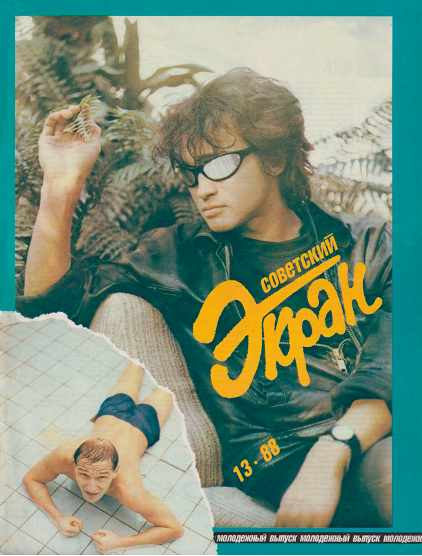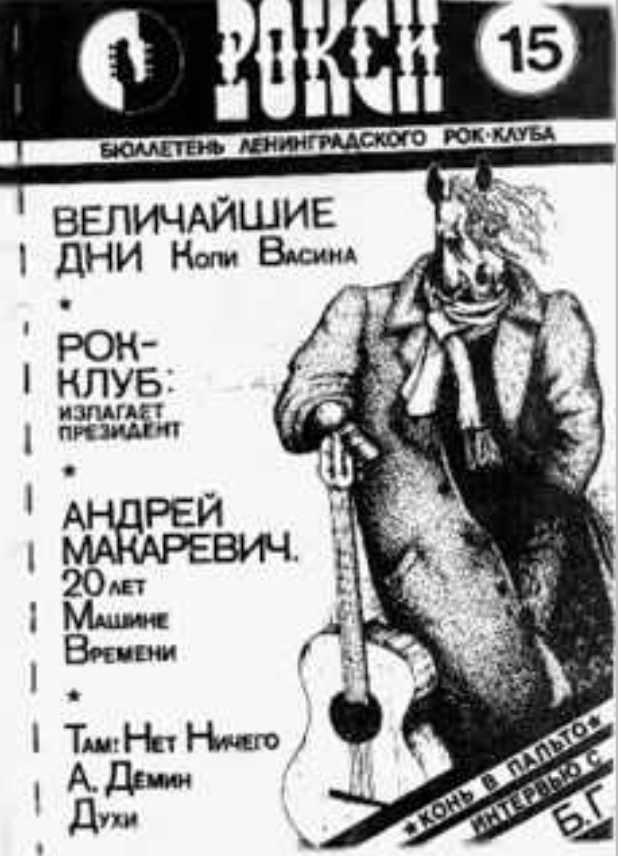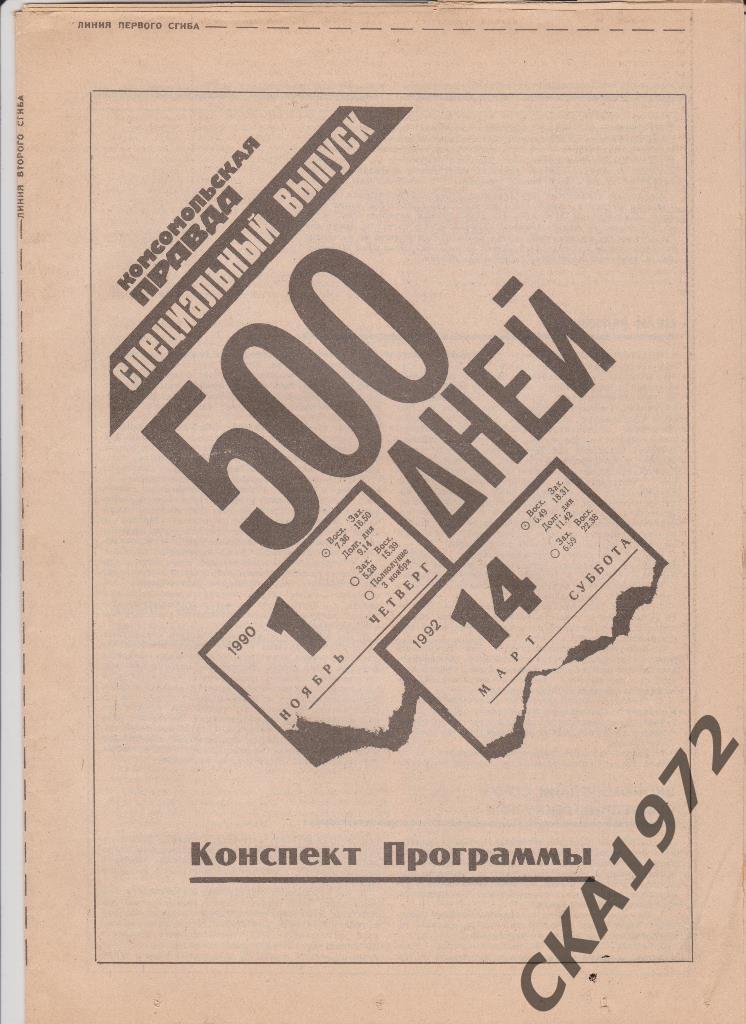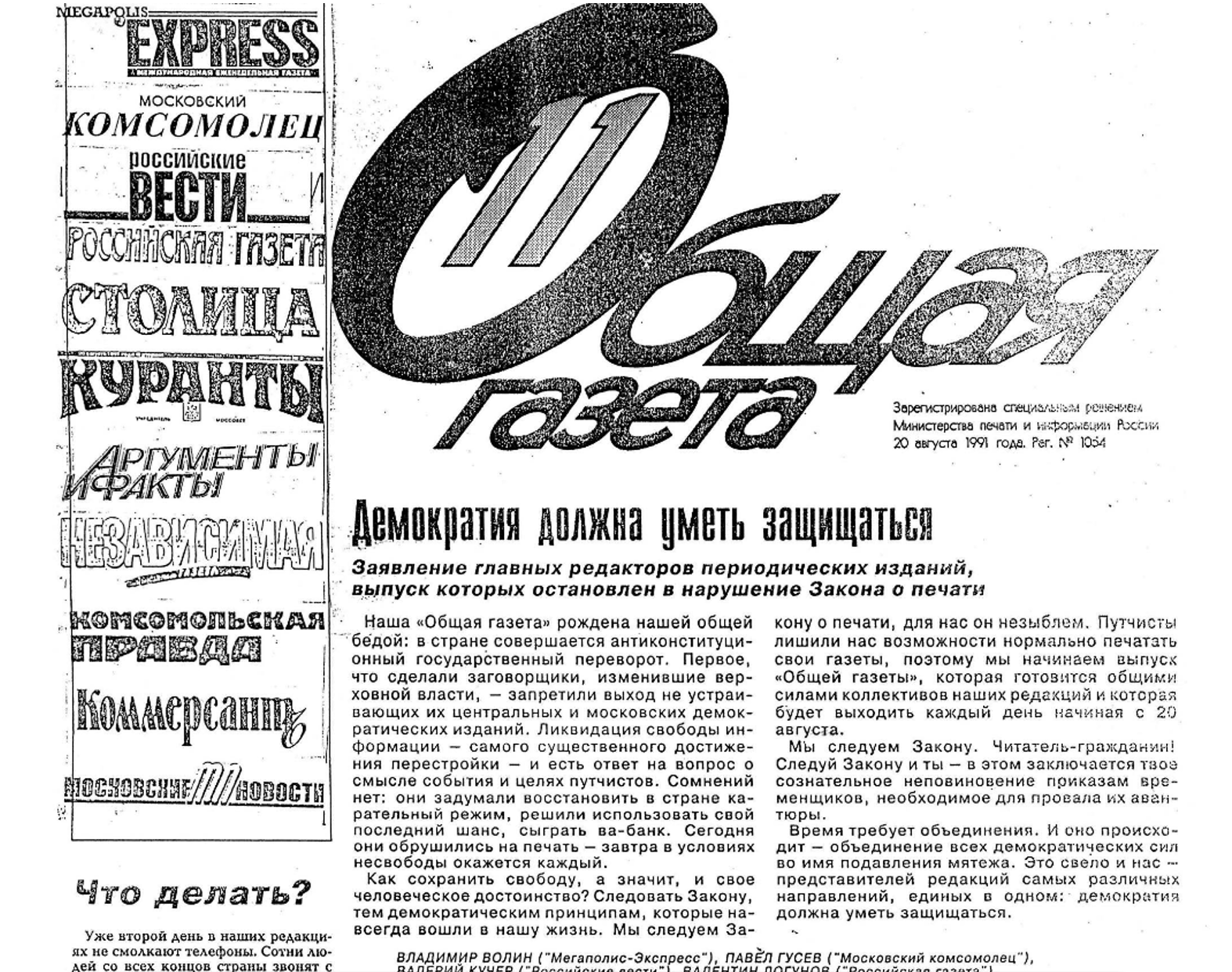Explore: media » journalism-print
“Sovetskii ekran” with Tsoi on cover, 1988
The cover image from Volume 13 (1988) of Soviet Screen (Sovetskii ekran, 1925-1998) depicts Viktor Tsoi (1962-1990) of Kino and Pyotr Mamonov (1951-2001) of the Moscow-based rock band Zvuki Mu, demonstrating how late-Soviet cinema magazines established rock musicians as cultural icons, while the film industry increasingly relied on underground rock culture for commercial content.
Last issue of the samizdat “Roksi” magazine, 1990
The final print issue of the Leningrad-based samizdat rock journal Roksi, founded in 1977 by members of the rock band Aquarium and the future president of the Leningrad Rock Club (LRC). Considered the first rock publication in the Soviet Union, and subject to raids by the KGB, Roksi eventually became the official newsletter of the LRC—thus attaining legitimization by the state apparatus.
“500 Days: Program Summary,” a special issue of "Komsomolskaya pravda"
A special issue of the long-running Soviet daily "Komsomolskaya pravda" dedicated to economist Stanislav Shatalin's (1934-1997) "500 days" plan for economic reform under Mikhail Gorbachev (1931-2022).
View Artifact
No preview available
Gorbachev speaks with state media leaders
Mikhail Gorbachev’s (1931-2022) speech before a gathering of state media leaders on 14 March 1986, in which he named the Soviet media as the driver of perestroika’s success—positioning it as both a revolutionary force for public awakening and a loyal partner to the Party.




